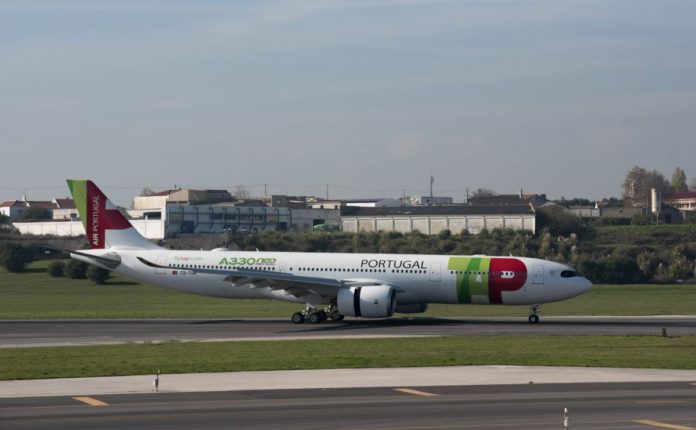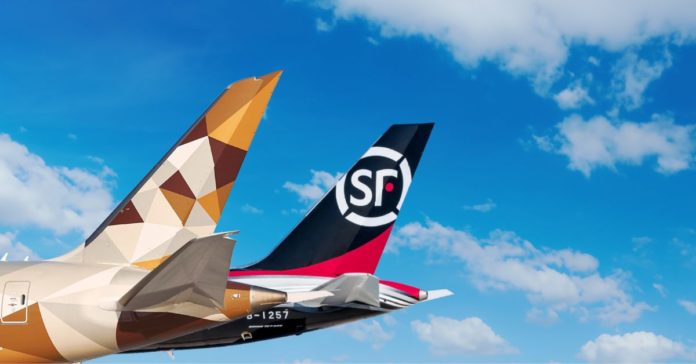TAP Air Portugal is to launch three times weekly flights between Lisbon and Curitiba in southern Brazil on 2 July 2026. It will be operated by A330-200 aircraft and, after Curitiba, will serve Rio de Janeiro (before returning to Lisbon, on Tuesdays, Thursdays, and Saturdays. With the new addition, TAP will fly to 14 cities in Brazil, making it the European carrier with the most destinations in the country.
Etihad and SF up capacity
Etihad Cargo and SF Airlines have announced a capacity increase as part of a Joint Business Agreement signed in June. Integrating Etihad Cargo’s and SF Airlines’ freighter services brings the combined total of weekly flights to Shenzhen to nine and to Ezhou seven per week.
End of De Minimis – not all bad, says U-Freight
U-Freight Group (UFL) says recent changes to US trade policy; particularly the removal of the de minimis threshold for duty-free imports, could bring opportunities as well as threats to freight forwarders.
UFL reports that instead of shipping individual orders directly to US consumers from overseas, several of its clients are pivoting to bulk shipping models — moving inventory in larger volumes into the US for domestic storage and fulfilment.
It argues that shipping in bulk for local fulfilment offers several upsides. Businesses can now pay duties based on wholesale costs, which are typically lower than the retail value of individual DTC shipments. This allows them to avoid surprising customers with unexpected import fees, reduce per-unit shipping and logistics costs, improve delivery speeds by utilising US fulfilment centres and maintain price competitiveness in the U.S. market, even without the benefit of duty-free thresholds.
UF says its network of distribution centres and experience in cross-border e-commerce logistics makes it well-positioned to support businesses making this transition.
U-Freight America chief executive Rick Keller said: “This change is driving a reassessment of supply chain models. Many shippers are now identifying which of their SKUs previously benefited from the de minimis exemption. They are running detailed cost simulations that factor in duties, tariffs, and various fulfilment strategies to find the most economical way forward.”
Etihad Cargo ready for (vertical) takeoff
Etihad Cargo has signed an agreement with LODD Autonomous to explore integration of ‘Hili’ hybrid VTOL aircraft into its UAE operations. The Hili has a payload y of 250kg and a range of over 700km and needs no runway.
The new partnership will centre on experimental operations to test the efficiency, safety, and ground logistics compatibility of the drone for point-to-point UAE-wide transfers.
Etihad Cargo will also explore the operational and commercial potential of integrating the VTOL aircraft into its future fleet.
From Mexico to Madrid
IAG Cargo carrier Iberia has transported a collection of artefacts from Mexico City to Madrid for the Half the World: Women in Indigenous Mexico exhibition. They moved on IAG Cargo’s Secure cargo solution and arrived in Madrid aboard four the carrier’s A350s. The collection will be shown at three of Madrid’s leading art museums until the first quarter of 2026.
Forwarders alarmed by Trump’s Mexico air routes cull
The Airforwarders Association (AfA) says it is concerned by the US government’s withdrawal of 13 routes operated by Mexican airlines, warning that it will reduce air cargo capacity between two of North America’s largest trading partners.
It follows an announcement by US Transportation Secretary, Sean Duffy, that prevents several Mexican carriers from operating passenger flights – with bellyhold cargo capacity – into the US.
Earlier, the US Transportation Department (DOT) ordered Delta Air Lines to end its joint venture with Aeromexico – in which the US carrier holds a 20% stake – citing a number of actions by the Mexicans government, including restrictions on freighter operations at Mexico City’s Benito Juarez International Airport and slot confiscations and restrictions on aircraft movements.
AfA executive director, Brandon Fried, said: “The loss of these flights won’t just affect passengers; it pulls critical cargo capacity out of the market. Forwarders depend on belly capacity to move everything from critical spare parts to fresh produce and medical supplies. Taking that away will strain supply chains that are already operating at tight margins.”
Etihad and Teleport launch Phnom Penh freighter
Etihad Cargo has launched a new freighter service from Techo International Airport in Phnom Penh, Cambodia in partnership with Southeast Asian logistics specialist, Teleport. From the winter 2025 season, the service will operate two weekly flights utilising Airbus A321F aircraft, giving 50 tonnes of cargo capacity per week and provide main deck connections to key markets in the Middle East, Europe and the Americas.
The partners already operate a joint freighter from Ho Chi Minh City in Vietnam.
No skin in this game
UK-based Animal welfare group The Donkey Sanctuary has applauded Air Canada and Emirates for their worldwide embargo on the carriage of donkey skins on all their flights, saying it is a significant step toward protecting animal welfare, public health, and the environment.
Each year, at least 5.9 million donkeys are slaughtered for their skins meet demand for traditional medicine. This trade, often covert and unhygienic, poses serious threats to animal and human health. Research by The Donkey Sanctuary has exposed links between the transportation of donkey skins, illegal wildlife trafficking and the spread of zoonotic diseases.
One Health Day is a global campaign that highlights the interconnectedness between human, animal, and environmental health. The Sanctuary added that in light of escalating threats from infectious diseases and antimicrobial resistance, the actions by Emirates and Air Canada demonstrate a strong commitment to this holistic approach.
By banning the carriage of donkey skins on all passenger and cargo flights, the airlines are helping to disrupt the international movement trade.
As donkey populations have been depleted across the world, the industry has shifted to global trade networks which source skins from vulnerable communities at any cost and often engage in theft of the animals.

Polmans to join handler Swissport
Steve Polmans will join handling company Swissport as global senior vice president cargo in mid-November.
He was most recently an independent air cargo consultant, and before that was vice president business development at Abu Dhabi Airports, director of cargo and logistics at Brussels Airport Company, where he played a key role in developing BRUcargo into a leading pharmaceutical logistics hub. He was also the founding Chairman of Air Cargo Belgium and served as chairman of The International Air Cargo Association (TIACA).
In his new role, Polmans will lead Swissport’s global air cargo operations with a focus on developing and driving the global cargo strategy and enhancing commercial performance. He will be responsible for identifying key growth opportunities through both organic expansion and strategic mergers and acquisitions.
Chapman Freeborn opens Zhengzhou office
Chapman Freeborn has opened an office in Zhengzhou – currently its sixth in China, alongside Beijing, Hong Kong, Shanghai, Chengdu, and Shenzhen. It follows the recruitment of a team in September, led by Ms. Huizi Zhao (Bella Zhao), who has joined as manager for Central Greater China. Her responsibilities involve leading Chapman Freeborn’s charter and freight forwarding operations, driving commercial development, and ensuring high-quality delivery across the region.
Zhengzhou was chosen due to its strategic location and its proximity to Xinzheng International Airport, which has a strong track record in handling outsized, irregular, and heavy-lift cargo, as well as standard e-commerce parcels and express shipments.
















